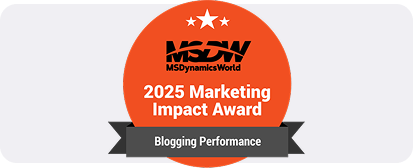Top 9 CRM Software for Automotive Industry in Canada | 2025
When someone decides to buy a car, the first stop is rarely the showroom. Most shoppers begin by comparing models, prices, and reviews online.
According to AutoTrader, 87% of new and used car buyers in Canada want to complete at least part of the vehicle-buying process online, including researching and comparing vehicles.
This shift means that dealerships cannot rely solely on sales staff; they need smarter systems that align with the way customers shop. That system is an automotive CRM.
An automotive CRM does far more than just record leads. It helps dealerships track customer journeys, manage pipelines, and strengthen loyalty long after the sale. But with so many platforms competing for attention in 2025, the real question is, how do you pick the best automotive CRM providers for your dealership?
In this article, we will explore the answers, so by the end, you will have a clear idea of what to look for when choosing an automotive CRM this year.
Let's get started.
What is CRM in the automotive industry?
CRM for automotive industry is software designed to meet the requirements of dealerships and auto service providers. In contrast to generic CRM Software, a CRM in automotive is more specialized to meet the specific requirements of the industry, including vehicle inventory tracking, lead management, after-sales service, and customer retention.
Benefits of Using CRM in Auto Dealerships
Selecting the appropriate automotive CRM system can develop a competitive edge. Here’s how:
Improved Lead Management: Manage all inquiries, walk-ins, or online forms from a single location.
Personalized Customer Experience: Deliver personalized offers, financing, and service reminders.
Dealership Efficiency: Optimize the operations by centralizing the sale, finance, and service departments' operations.
Better Insights: Advanced reporting will help managers to notice trends, top performers, and bottlenecks.
Scalability: Modern automotive CRM programs are cloud-based, thus scalable.
Best CRM for Automotive Industry in 2025
The choice of the best CRM in automotive can be daunting, as there are many solutions available. In order to make it easy, below is the best automotive CRM software that Canadian dealerships can take into account in 2025. All the systems have their own strengths based on the size of the dealership, location, and customer strategy.
Here is a list of the best CRM for automotive industry:
1. Microsoft Dynamics CRM

Microsoft Dynamics CRM is more than a dealership CRM. It is a fully fledged business platform that has been trusted in the business industry, including the CRM software for automotive industry in Canada.
Key Features:
- Smooth Microsoft integration (Teams, Outlook, Office 365).
- Artificial intelligence-based sales data and predictions of customer behaviour.
- CRM systems that are scalable to single or multiple location dealerships.
- Good reporting and compliance capabilities.
Best For:
Dealerships that require a more customized and enterprise-level solution and long-term scalability.
2. Teamgate CRM

It is a cloud-based CRM for automotive industry players that want simplicity without losing power. It aims to help the sales team close leads faster and faster through an intuitive workflow.
Key Features:
- Sourcing of leads and their tracking across several channels.
- Intelligent sales pipeline analytics.
- Combined communication (chat, email, phone).
- Easy reporting dashboards.
Best For:
Small to mid-sized dealerships interested in a CRM for small business that is easy to install, simple to use, and low cost.
3. AutoRaptor

AutoRaptor is a specifically created automotive CRM system used in independent dealerships and used-car businesses.
Key Features:
- Lead management design to suit automotive sales.
- Follow-ups in the form of emails and texts.
- Sales documentation compliance tools.
- On-the-go sales teams can access it via mobile.
Best For:
This software is best for car dealerships that sell used cars and for auto groups that do not need the complexity of enterprise CRM software.
4. DealerSocket

A familiar name within the automotive CRM tools sector is DealerSocket, which provides an all-encompassing platform to franchise and independent dealerships.
Key Features:
- Integration of inventory management.
- Online marketing automation.
- Collaboration tools of the sales and service department.
- Developed reporting and analytics.
Best For:
Dealerships interested in an integrated sales, marketing, and service dealership CRM.
5. ProMax

ProMax has been providing decades of reliable automotive CRM software and compliance-based tools to dealerships.
Key Features:
- Credit and compliance management applications.
- Lead clean solutions and desking solutions.
- Combined inventory management.
- Automation of communication with customers.
Best For:
Dealerships prioritize compliance, finance, and desking features with traditional CRM functionality.
6. VinSolutions

VinSolutions (powered by Cox Automotive) is a CRM in automotive that allows sales, marketing, and service to be viewed as one customer.
Key Features:
- Integrates with DMS and dealership websites.
- Well-developed online stores.
- Retention and service scheduling tools.
- Artificial intelligence customer engagement data.
Best For:
Auto groups and large dealerships require total CRM software for automotive industry with retailing and service features.
7. Dominion Dealer Solutions
.png)
Dominion Dealer Solutions offers automotive CRM systems that aim at marketing and digital advertising in addition to sales management.
Key Features:
- CRM and website and online marketing integration.
- Inventory and data analytics solutions.
- Customer retention marketing.
- Integrations of service departments.
Best For:
Dealerships that desire a CRM automotive solution that is interconnected with digital advertising and customer interaction.
8. DriveCentric

DriveCentric is a new, AI-based automotive CRM solution that can enhance interaction with customers and simplify communications.
Key Features:
- AI chatbot and engagement tracking.
- Multi-channel (text, social, email) communication.
- Live action reporting dashboards.
- Monitoring performance of the sales team.
Best For:
Dealerships seek a more customer-focused CRM that is modern, customer centered and has the latest communication tools.
9. Selly Automotive

It provides lightweight CRM software to players in the automotive industry, with particular attention to independent and BHPH (Buy Here, Pay Here) dealerships.
Key Features:
- Lead and customer management for small dealerships.
- Combination with well-known dealer management systems.
- Mobile-first affordable design.
- Easy user interface to adopt.
Best For:
Smaller businesses and independent dealerships seeking a cost-effective, easy-to-implement CRM in the automotive industry.
Selecting the right CRM
The best CRM for automotive industry is based on your dealership size, budget, and objectives. Before making a decision, ask:
- Do you need scalability for multiple dealership locations?
- Should your automotive CRM software integrate with your existing ERP or accounting system?
- How important is AI-driven customer insight for your sales team?
- Do you prefer local support in Toronto, Vancouver, or Ontario?
Note: A successful CRM implementation is about aligning the technology with your business strategy.
How Dynamics Square can help
At this point, you can select the appropriate automotive CRM systems, yet it is half of the entire process. The most difficult part of most dealerships and businesses is putting it into practice. This involves making sure that the software fits with your processes, people, and long-term objectives. Therefore, to bring comfort to businesses, Dynamics Square, a reputed Microsoft Dynamics partner, takes center stage in this activity.
At Dynamics Square, we do not simply install software, but we assist you in changing the way your business functions. We have the expertise and know-how to match Microsoft Dynamics CRM and Dynamics 365 solutions with the needs of your dealership so that you can:
- Automate Sales and Customer Interaction
- Promote Business Productivity
- Make CRM implementation process smooth
- Use Advanced Analytics and AI
- Scale with Confidence
Revolutionize Your Automotive CRM with Dynamics 365 Call us at +1 778 381 5388 or write to us at info@dynamicssquare.ca, and get real-time insights, automate processes, and boost sales—faster than ever.
People Also Ask:
1. What does CRM mean in the motor industry?
An automotive CRM is software that enables dealerships to operate customer tasks, lead tracking, follow-ups, sales, and service operations all under a single system. It transforms unstructured interactions with customers into structured, can-do insights.
2. Which is the best automotive CRM?
CRM depends on the dealership's requirements. The best-rated ones are Microsoft Dynamics CRM, VinSolutions, DealerSocket, and AutoRaptor, which are scalable and industry-specific.
3. What are four kinds of CRM systems?
Here are four kinds of CRM systems:
Operational CRM: Automates the sales and service processes.
Analytical CRM: Analyzes customer data to give insights.
Collaborative CRM: Improves interdepartmental communication.
Strategic CRM: It is concerned with managing customer relationships in the long term.
4. What is the best CRM in the auto transport?
Auto transport logistics typically demands dedicated CRM products that suit fleet management and shipment tracking. Whereas general automotive CRM might provide certain features, specialized transport CRM is advisable where efficiency is desired.
5. What is the distinction between CRM and Dealer Management System (DMS)?
A CRM is used to manage customer relationships and sales processes, whereas a DMS is used to manage the activities happening at the back-end, such as inventory, accounting, and service management. The combination of both systems guarantees smooth dealership operations.
6. What is CRM in manufacturing?
CRM systems in manufacturing help to maintain customer, supplier, and distributor relationships, optimizing the sales, marketing, and customer service operations to make them more efficient and customer-focused.


